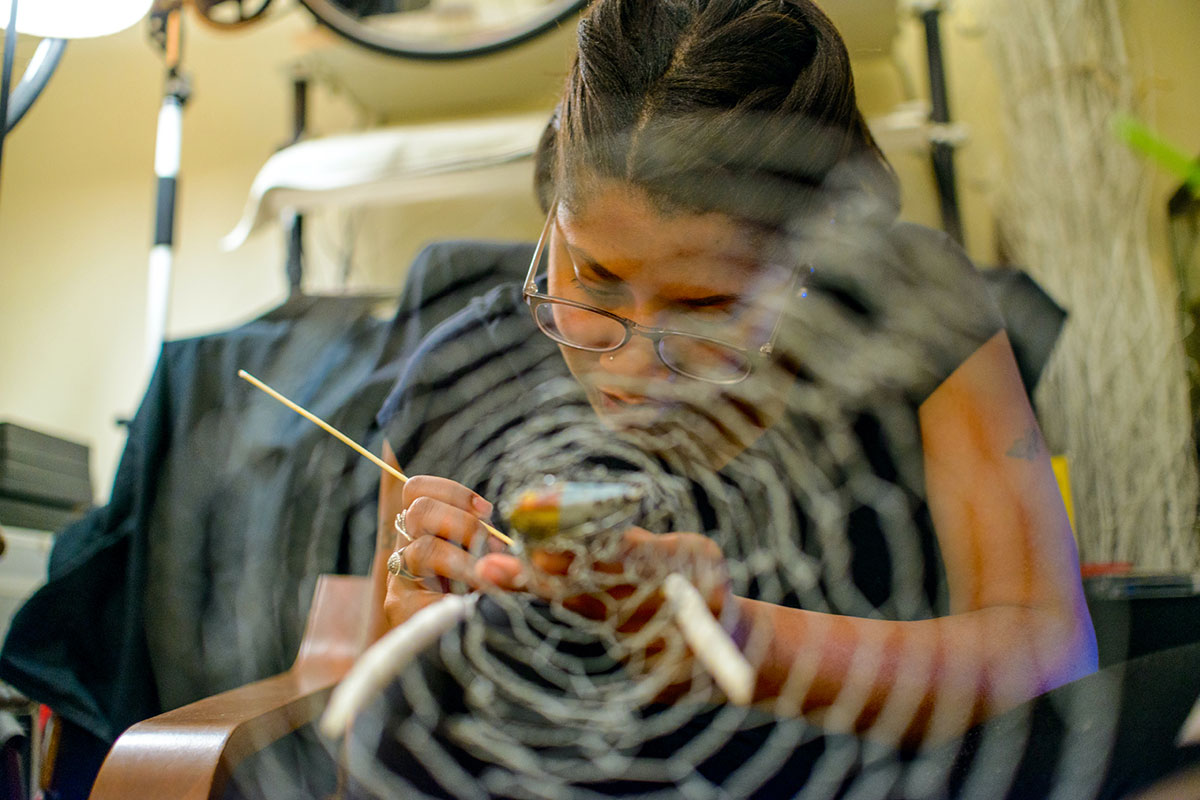The Smithsonian Center of Folklife and Cultural Heritage is launching the African American Craft Initiative, a pan-institutional effort to highlight the voices and work of African American makers while building strong, maker-led networks and collaboration opportunities. From October 6 to 8, the Center will host a three-day virtual Makers Summit, gathering African American makers from across the country to discuss the cultural heritage, craft practices, and issues of representation in the broader American craft community.
The summit will center makers’ voices in discussions ranging from the power of personal narratives told through craft to varying ways of nurturing and expressing cultural heritage, to ensuring equitable access to markets and resources. As part of the Smithsonian Artisan Initiative and the Center’s Cultural Sustainability program, the event will provide a platform to help develop actionable steps to support, grow, and sustain African American makers, their craft practices, and their entrepreneurial endeavors.
As Smithsonian Folklife curator Diana N’Diaye explains, the summit was conceptualized to build on the legacy of the 1979 National African American Craft Conference and Jubilee, organized by Benetta Nelson West in Memphis, Tennessee, at Shelby State Community College.
“The jubilee led to the creation of the National Black Arts Festival and the National Conference of Artists, both of which have been instrumental in connecting African American artists and makers with one another and to the art world at large,” N’Diaye says.
The summit and the African American Craft Initiative are both designed to examine the disproportionate effect of the COVID-19 pandemic on African Americans and, N’Diaye says, “address the belated recognition of the devastating effects of systemic racism, through the lens of the African American craft community.”
The African American Craft Initiative will bring critical representation, awareness, and institutional support to the African American craft community through research, documentation, network building, and a variety of public programs. While the upcoming summit is by invitation only, the Center and its initiative partners will host several public programs including online Story Circles, virtual artist studio tours and demonstrations, and makers markets, to be announced soon.
For inquiries, please contact AACI program coordinator Sloane Keller at KellerSR@si.edu.
About the Smithsonian Artisan Initiative
The Smithsonian Artisan Initiative aims to reposition artisans as leaders of the creative economy by providing the knowledge, skills, and support necessary to revive and sustain their communities’ craft traditions. Dedicated to building the sustainability of traditional knowledge and cultural expression, the program brings together community-driven research and documentation, product design and development, enterprise training, and a suite of tools artisans can use to unlock access to markets.
About the Cultural Sustainability Program
At the Center for Folklife and Cultural Heritage, we acknowledge a significant and accelerating decline in cultural vitality. While globalization connects us in new ways, it also threatens the world’s cultural diversity. Social, economic and political forces—like urbanization, oppression, war, genocide, climate change, and mass production of culture—pressure traditional cultures to assimilate. In the face of these challenges, communities persist in preserving and practicing their living cultural heritage. Our Cultural Sustainability program works with communities to bolster these efforts.


